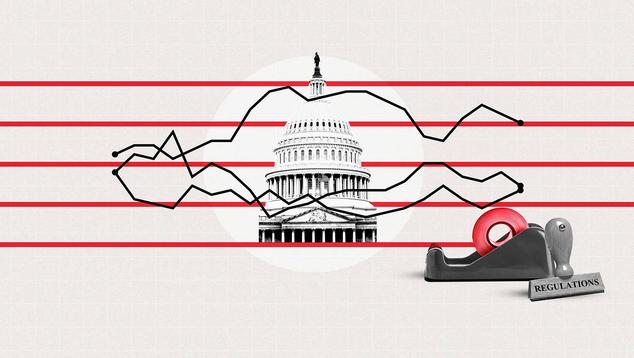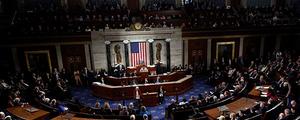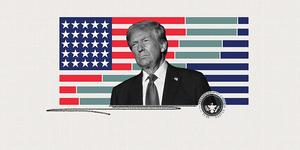Calls for eliminating government regulation of business in the U.S. have a long history. Democratic President Jimmy Carter pushed for deregulation of the airlines and signed the Airline Deregulation Act into law in 1978. Republican President Ronald Reagan built on the Carter administration’s initiatives to decontrol and deregulate the economy. Presidents George H.W. Bush and George W. Bush attempted to deregulate parts of the U.S. economy. President Donald Trump focused on deregulation in his first administration.
Now there are continuing calls for reducing regulation of business — from Trump, from many Republican lawmakers, from traditionally Democratically oriented thinkers like Ezra Klein and from business advocacy organizations like the U.S. Chamber of Commerce.
In particular, the newly created Department of Government Efficiency was given a clear objective to deregulate. Trump’s executive order establishing DOGE mandated that agencies and departments “commence the deconstruction of the overbearing and burdensome administrative state.” Project 2025, the conservative think tank document providing a blueprint for much of the Trump administration’s actions relating to government, also focuses heavily on the need for deregulation.
The issue at hand: How does all of this align with American public opinion?
We have evidence that helps answer that question. A Gallup survey question — tracked annually for the past 24 years — asks Americans whether there is “too much,” “too little” or “about the right amount of” government regulation of business and industry.
In recent years, the share of Americans saying there is too much regulation has hovered around the low to mid-40% range — 42% in 2024, 44% in 2023 and 46% in 2022. A relatively steady 23% to 27% of U.S. adults have said there is too little regulation. About three in 10 have said the level is about right.
Attitudes about deregulation are, thus, complex, as is often the case with policy matters. A substantial minority of Americans clearly agree with critics and administration officials who say there is too much regulation. But they are outnumbered by the combination of those saying the amount of government regulation is about right or too little. There is, in short, no strong majority of Americans in favor of reducing regulation.
These attitudes have changed only marginally over the past 15 years. Public perception of too much regulation edged up slightly during the Barack Obama years, slipped down during the first Trump administration and came back up slightly during the Joe Biden years.
We will have a new update on this measure in September. A reasonable prediction: The “too much” number will go down again. Republicans will likely be happier with the status quo under Trump. And Democrats will, if anything, become more likely to say there is too little regulation.
But the basic pattern remains the same regardless of minor ups and downs. Never in Gallup’s history of asking the question have more than 50% of Americans responded by saying there is too much regulation of business.
The divided views in response to this question are symptomatic of Americans’ divided views on government itself. Americans appreciate some things the government does, do not appreciate others and believe the government could be better run. Government has frequently been mentioned as the nation’s most important problem in recent years. But a lot of that discussion centers on elected representatives, not government bureaucracy.
Two other Gallup questions about the role of government shed additional light on all of these public attitudes about the government:
- Slightly over half of Americans say the federal government has too much power.
- An even higher percentage say the government is doing too much that should be left to individuals and business.
So, Americans are more likely to say the government has too much power and is doing too much than they are to say there is too much government regulation of business. Doing the math, this means:
- About a quarter of those saying the government has too much power also say that business regulation is about right or too little.
- About a third of those saying the government is doing too much also say that business regulation is about right or too little.
What does this tell us? Concerns about government power and government overreach are, to some degree, separate from concerns about too much business regulation.
There is, in fact, significant public agreement that some regulation of business is necessary. A Pew Research survey last year showed that almost six in 10 Americans say “government regulation of business is necessary to protect the public interest”; 40% say “government regulation of business usually does more harm than good.”
Thus, Americans appear to believe that regulation is needed to prevent abuses and ensure fairness, even though there is inevitable disagreement about how much regulation is optimal.
This call for balance is not uncommon in the study of public opinion. Americans, taken together, often hold nuanced views. Rarely do they share unanimous views supporting one-sided, draconian policies. Balance is Americans’ preferred approach.
Republican Views More Fluid
Differences in opinions of the role of government form a core ideological distinction between Republicans and Democrats, now and throughout recent history. Republicans want less government intervention; Democrats want more.
This difference is clearly evident when it comes to questions about government regulation of business and industry.
- In September, 69% of Republicans and Republican-leaning independents said there was too much regulation of business, with 10% saying there was too little.
- Democrats, on the other hand, held a contrary view — 13% said there was too much regulation, 44% too little.
The two partisan groups were closer together in their views about too much government regulation in the years immediately after 9/11. But today’s yawning divide became evident about 15 years ago.
Republican views of government regulation of business are somewhat fluid, depending on the political environment. Republican perceptions of too much regulation went up during the Obama administration, dropped during the first Trump administration and rose again during the Biden years. Democrats’ much lower views of too much regulation have held relatively steady, edging down slightly in recent years.
Bottom Line
Gallup’s long-running trend data show that less than half of Americans — most recently, ranging from 42% to 46% — say there is too much regulation of business. This number has fluctuated modestly in response to changing presidential administrations. But it has never exceeded the 50% threshold in over two decades of measurement. In contrast, more than half of Americans combined believe there is either too little regulation or that the current level is about right.
The data paint a picture of a cautious public, not one that readily endorses blanket “one size fits all” solutions. The majority of Americans do express unease with the size and scope of government. But they simultaneously appear to affirm the importance of regulatory safeguards. Americans appear to favor surgical and selective deregulation. They are not calling for radical change. They are calling for governance that balances oversight with efficiency and fairness.
This mandate for selective deregulation makes sense when we consider the vast and complicated ways the government touches business and industry today. When we ask about "government regulation of business," respondents may be thinking about environmental rules, banking oversight, labor standards, tech industry oversight, small business paperwork burdens, consumer protection and workplace safety, cutting red tape and bureaucratic inefficiency, or something else altogether. We know that Americans are much more sympathetic to small business than to big business, meaning they are probably more likely to support deregulation of the former than the latter.
More detailed questioning can shed light on these specifics. Americans almost certainly would endorse government deregulation in some areas while being hesitant about deregulation in others.
But what we can measure each September is the public’s top-of-mind reaction to the phrase “government regulation of business and industry.” And from that, we know that a little more than four in 10 Americans’ immediate reaction today is to say there is too much of it, with the rest — 55% — split between saying there is too little or about the right amount.
This leaves, in my opinion, a major takeaway from these data: The absence of a large majoritarian mandate for a decrease in government regulation of business and industry. The majority of Americans do not rally in support when they hear the phrase “government deregulation of business and industry” — at least not without further specification of what is involved. Efforts to make dramatic changes of the kind being advocated by the administration and others on both the left and the right should be made with these public opinion considerations in mind.
To stay up to date with the latest Gallup News insights and updates, follow us on X @Gallup.





